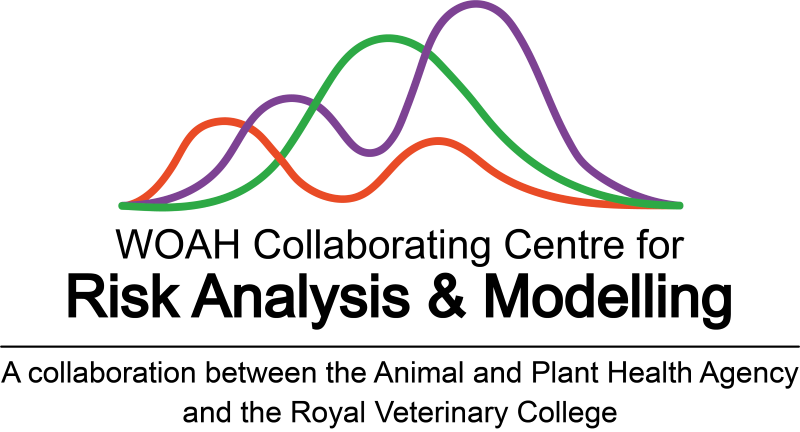Highlights of the Collaborating Centre’s 2022 activities
In this update Javier Guitian, Professor of Veterinary Public Health at the RVC, summarises some of the key activities of the World Organisation for Animal Health (WOAH) Collaborating Centre in Risk Analysis and Modelling that were listed in the recently published 2022 annual report.

2022 was a very productive year for the Collaborating Centre, jointly hosted by the Animal and Plant Health Agency (APHA) and the Royal Veterinary College (RVC). The Centre continued to carry out risk analysis on a broad range of animal and public health issues, such as: the risk of rabies introduction from dogs; the risk of introduction of Aujeszky’s disease from live pig imports and the identification of hazards associated with the importation of alpacas. In a year dominated by avian influenza, risk assessors also provided multiple risk assessments as part of the UK’s outbreak response National Emergency Epidemiology Group (NEEG), including risk assessments for tracing, feed and licensed movements. As well as assessing specific risks, the Collaborating Centre has developed generic tools to prioritise risks that may be of use in different countries and settings. This includes a tool to prioritise emerging biological risks and hazards that we used to assess the impact of the risk of introducing infectious diseases from Ukraine to the UK, and a tool to prioritise foodborne hazards in data-scarce environments applied to the dairy sector of Andhra Pradesh in India.
Members of the Collaborating Centre continue to contribute to the development of international guidelines and standards including surveillance guidelines for some of the hazards responsible for highest animal and public health burdens worldwide: antimicrobial resistance and neglected zoonoses.
The Centre regularly disseminates the outcomes of its activities widely and to different audiences, with 45 scientific publications within the remit of risk analysis and modelling published in peer-reviewed journals during 2022, in addition to several reports and briefs aimed at non-academic audiences.
Our capacity building activities in 2022 were extensive and included contributions to formal undergraduate and postgraduate training programs, as well as short courses and training programs for professionals. Among them, in partnership with the International Livestock Research Institute (ILRI), the Centre provided training in animal health and food safety risk analysis to professionals from Ethiopia, Ghana, Bangladesh and Nigeria. Also, in collaboration with the Food and Agriculture Organization of the United Nations (FAO), we delivered a field epidemiology training program over a four-month period to 18 members of the Jordanian Veterinary Services. Members of the Collaborating Centre have also delivered specialised training aimed at researchers including an introductory training course on applying game theory to animal health with around 30 participants, mostly from European countries.
During 2022, WOAH invited the Collaborating Centre to produce an issue of the WOAH Scientific and Technical review on Animal Health Data Management. The issue was published on 5 May 2023, and included contributions from experts at our Centre and other WOAH collaborating centres. See the recent news story about this.
Further information can be found in the publications below:
- Annual report of 2022 activities
- WOAH Scientific and Technical review on Animal Health Data Management
Please email RAM.WOAHCollaboratingCentre@apha.gov.uk with any enquiries



